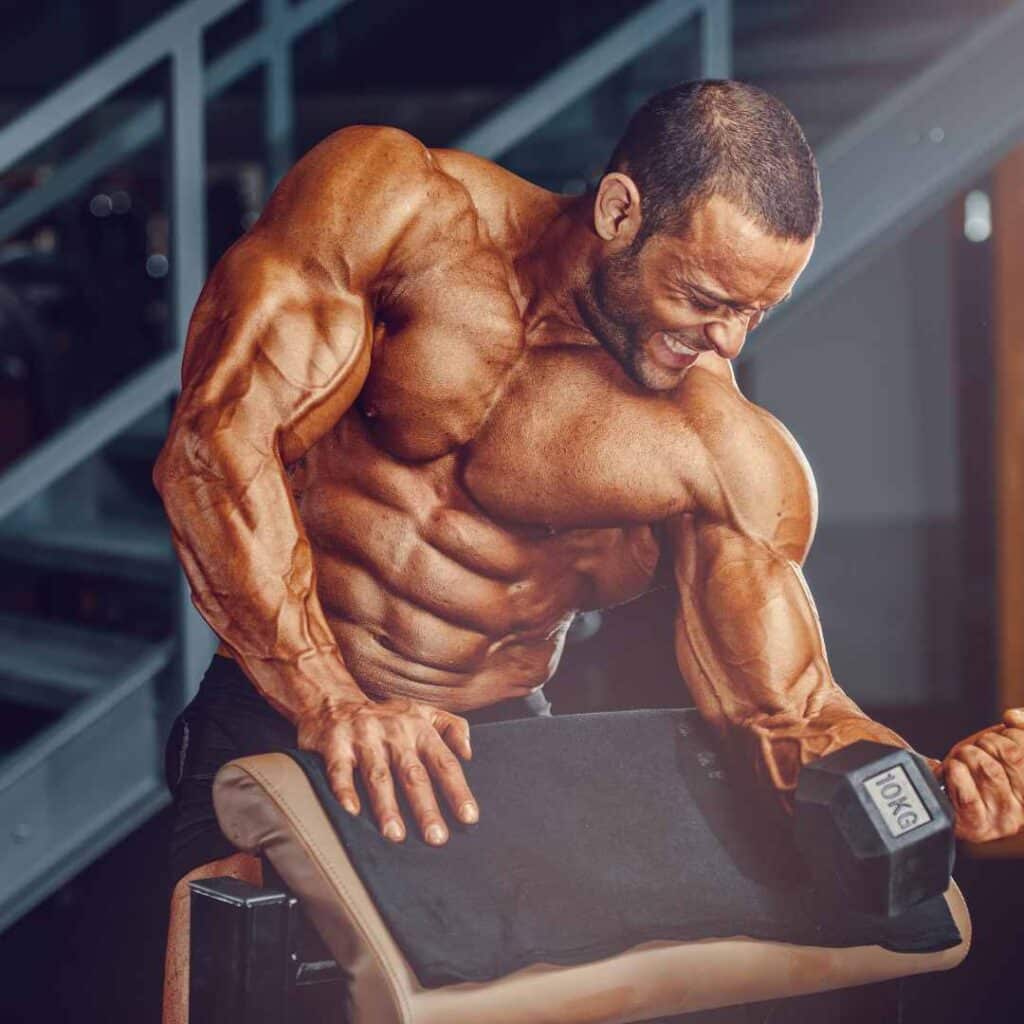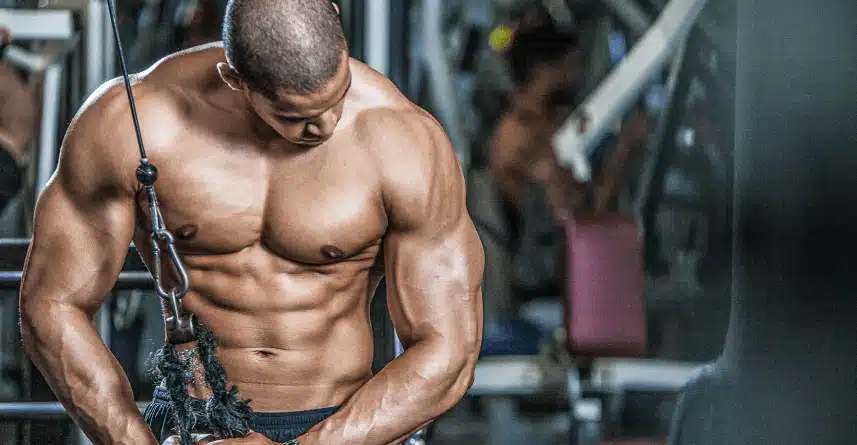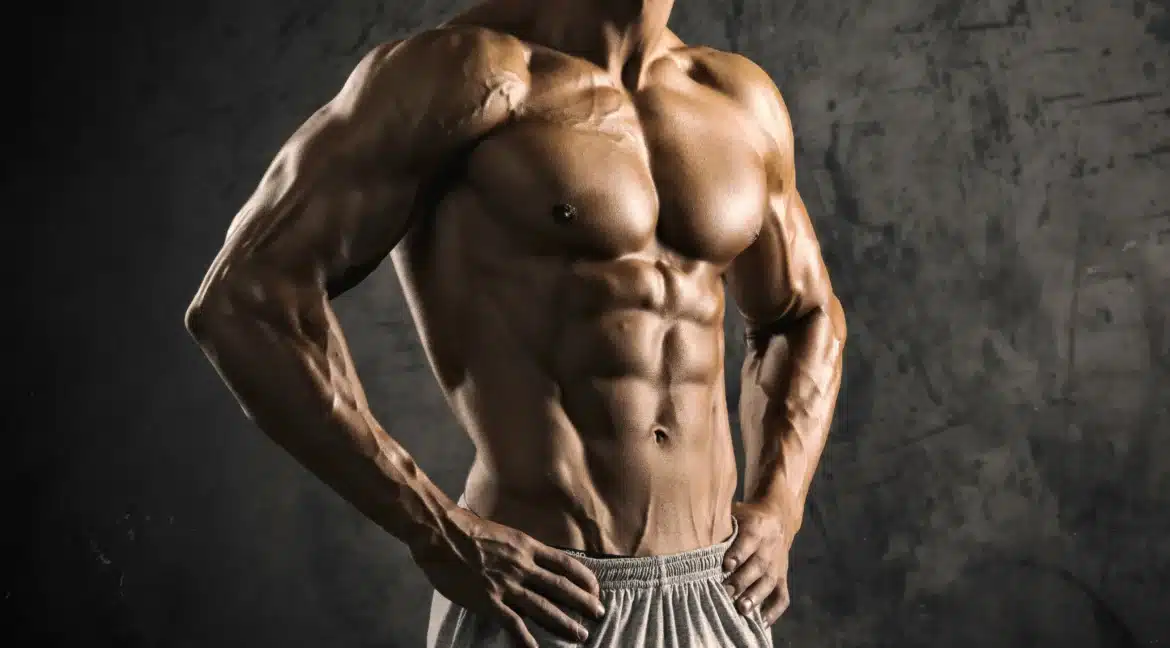Introduction
What Is Trt Bodybuilding: TRT bodybuilding represents a unique intersection of medical science and fitness culture, where individuals utilize prescribed testosterone to optimize muscle growth, physical performance, and overall well-being. While TRT has been widely accepted as a legitimate medical treatment for hypogonadism and related conditions, its use in the pursuit of enhanced athletic performance raises ethical, medical, and legal questions.
To comprehend TRT bodybuilding fully, it is essential to delve into its core components. First and foremost, understanding testosterone is crucial. Testosterone is a naturally occurring hormone in the human body, responsible for various functions, including muscle development, bone density, and libido. As men age, their testosterone levels tend to decline, which can result in a range of symptoms such as decreased energy, muscle mass loss, and mood swings. This decline has led to the emergence of TRT as a legitimate medical intervention.
In the context of bodybuilding, TRT is often utilized as a means to counteract the natural decrease in testosterone levels associated with aging, effectively allowing individuals to maintain or increase muscle mass and physical performance beyond what they might achieve naturally. This has sparked a significant debate, with proponents arguing that it can be a valuable tool for those struggling with age-related testosterone decline, while critics claim it blurs the line between legitimate medical treatment and performance enhancement.

Is TRT steroid safe?
Steroids are used illegally and at dangerously high doses to pursue greater muscle mass and athletic performance. Rest assured: If you’re using testosterone with the guidance of a certified medical provider, you’ll be able to safely treat symptoms of low-T without the risks associated with testosterone abuse.
Improved Quality of Life: Many men report significant improvements in their overall quality of life after undergoing TRT. This includes increased energy levels, improved mood, and enhanced cognitive function.
Increased Muscle Mass and Bone Density: TRT can help men build and maintain muscle mass and bone density, which is particularly as they age.
Enhanced Sexual Function: TRT can lead to improvements in libido, erectile function, and sexual satisfaction for men with low testosterone levels.
Potential Cardiovascular Benefits: Some studies suggest that TRT may have cardiovascular benefits, including improved lipid profiles and reduced risk factors for heart disease.
Do bodybuilders need TRT?
Yes, TRT can contribute to muscle building and improved muscle strength in individuals with low testosterone levels. Testosterone is a crucial hormone involved in muscle development and maintenance. When testosterone levels are low, it can negatively impact muscle growth and strength.
Muscle Growth: Testosterone is an anabolic hormone that promotes muscle protein synthesis. Adequate levels of testosterone are essential for muscle growth, making it an attractive option for bodybuilders seeking to maximize their gains.
Energy and Recovery: Testosterone also influences energy levels and post-workout recovery, which can enhance a bodybuilder’s ability to train intensely and frequently.
Fat Loss: Higher testosterone levels have been linked to increased fat metabolism and reduced body fat percentages, which are advantageous for bodybuilders aiming for a lean physique.
Health Risks: Unsupervised or excessive use of TRT can pose health risks, including cardiovascular problems, mood swings, and fertility issues. It is essential for individuals considering TRT to consult with a qualified healthcare professional to determine if they genuinely have a medical need.
Does TRT help build muscle?
Will Testosterone Replacement Therapy Increase Muscle? One of the best-documented effects of testosterone therapy is an increase in lean body mass, which is mostly attributed to a gain in muscle mass. This benefit has been demonstrated in a number of studies.
Protein Synthesis: Testosterone stimulates muscle protein synthesis, the process by which the body builds new muscle tissue. This promotes muscle repair and growth after exercise.
Increased Muscle Fiber Size: Testosterone increases the size of muscle fibers, leading to greater muscle mass and strength.
Enhanced Recovery: Adequate testosterone levels can improve post-exercise recovery, allowing individuals to train more frequently and intensely, which can lead to greater muscle gains.
Reduced Fat Mass: Testosterone also has a role in regulating body fat, and higher testosterone levels can promote fat loss while preserving lean muscle mass.
Improved Protein Synthesis: TRT increases the rate of muscle protein synthesis, allowing for more efficient muscle repair and growth.
What are the TRT levels for bodybuilding?
Based on the findings, a dose between 100 and 125 mg/week may be sufficient to restore testosterone levels to baseline in young men. Higher doses within the bodybuilding range (300-600 mg/week) appear to have a more pronounced effect on muscle mass, strength, and libido.
There are no specific “TRT levels” designed for bodybuilding purposes. Testosterone Replacement Therapy (TRT) is a medical treatment prescribed to individuals with clinically diagnosed low testosterone levels, also known as hypogonadism. TRT aims to restore testosterone levels to within the normal physiological range, alleviating the symptoms associated with low testosterone.
The levels at which TRT is prescribed are determined based on an individual’s specific medical needs and laboratory test results. Generally, a total testosterone level below 300 ng/dL (nanograms per deciliter) is often considered low and may be an indication for TRT in individuals experiencing symptoms of low testosterone, such as fatigue, reduced libido, mood changes, and muscle weakness.
TRT should be administered under the supervision of a qualified healthcare provider who can evaluate an individual’s overall health, assess their symptoms, and conduct necessary laboratory tests to determine if TRT is medically warranted. The goal of TRT is to bring testosterone levels back within the normal physiological range, not to elevate them beyond what is considered normal for a given individual.
Does TRT damage sperm?
Along with an increase in hematocrit, a major adverse effect of TRT is the diminished sperm production because of the decreased intra-testicular concentration of testosterone and suppression of the hypothalamic-pituitary-gonadal (HPG) axis [2,3,4].
Suppression of Natural Testosterone Production: One of the primary concerns regarding TRT and sperm health is the potential suppression of the body’s natural testosterone production. When exogenous testosterone is introduced into the body, the testes may reduce or even halt their production of testosterone. This can subsequently lead to a reduction in sperm production and fertility issues.
Temporary Fertility Impairment: TRT can temporarily impair fertility in some men. It’s essential to be aware that while on TRT, sperm counts may decrease, and sperm motility (ability to swim) may be affected. For men who desire fertility or are considering future family planning, this can be a significant concern.
Reversible vs. Irreversible Effects: The impact of TRT on sperm health can be reversible or irreversible, depending on individual factors. In some cases, discontinuing TRT may lead to the restoration of natural testosterone production and improved sperm parameters. However, in others, especially those with pre-existing fertility issues, the effects may be longer-lasting or permanent.
What does TRT cost?
How much does TRT cost? TRT costs range from $1,650 to $3,200 per year, depending on the type of TRT, the mode and frequency of administration, and a person’s insurance coverage.
Type of TRT: The specific type of TRT chosen can significantly impact the cost. TRT can be administered in various forms, including injections, gels, patches, and implants. Each of these methods has a different cost associated with it.
Frequency of Treatment: The frequency at which TRT is administered can affect the overall cost. Some individuals may require regular injections, while others may use daily gels or patches.
Dosage: The dosage of testosterone prescribed can vary based on an individual’s needs and the severity of their condition. Higher dosages may result in increased costs.
Brand and Formulation: Different brands and formulations of TRT medications are available, and their prices can vary. Generic versions may be more affordable than brand-name options.
Health Insurance: Health insurance coverage can significantly impact the out-of-pocket cost of TRT. Some insurance plans cover all or a portion of the expenses associated with TRT, while others may have limited coverage or require high copayments.
Do billionaires take TRT?
As the owner of Amazon, billionaire Jeff Bezos is believed to be the richest man in the world. His focus has not just been on his business empire, however, as in recent years he has used TRT to improve his physique for a noticeably more muscled look.
Privacy: Billionaires and high-net-worth individuals typically value their privacy. Therefore, any information about their personal healthcare choices, including TRT, is often kept confidential.
Age and Health: Like anyone else, the decision to undergo TRT may depend on an individual’s age, overall health, and medical needs. While some older individuals may explore TRT to address age-related declines in testosterone, others may not have a medical need for it.
Access to Healthcare: Billionaires typically have access to top-tier healthcare and medical professionals who can provide a wide range of treatments and interventions, including TRT, if deemed necessary.
Ethical Considerations: The use of TRT, like any medical treatment, should be based on legitimate medical need. Using TRT solely for performance enhancement or non-medical purposes is not ethical and may not align with medical guidelines.
Diverse Interests: Billionaires have diverse interests and pursuits, and not all of them may be focused on optimizing physical performance or appearance, which are among the potential benefits of TRT.
Does TRT cause hair loss?
If you’re considering TRT, you may be wondering about the impact of TRT on hair loss. While TRT doesn’t directly cause hair loss, increased Testosterone can lead to androgenic alopecia if the patient has a genetic sensitivity to the hormone DHT (dihydrotestosterone).
Genetics: Genetics play a significant role in determining an individual’s susceptibility to male pattern baldness. If you have a family history of baldness, you may be more prone to hair loss regardless of TRT.
Dosing and Monitoring: Healthcare providers typically monitor TRT to ensure that testosterone levels are within the normal range. If levels become excessively high, adjustments to the treatment plan may be made to mitigate potential side effects, including hair loss.
Treatment Alternatives: If you are concerned about hair loss while on TRT, you can discuss potential alternatives or complementary treatments with your healthcare provider. These may include medications like finasteride, which can help reduce DHT levels and slow down hair loss.
Individual Response: To note that the relationship between TRT and hair loss can vary among individuals. Some may experience minimal or no hair loss, while others may notice changes.
Androgenic Alopecia (Male Pattern Baldness): The most common form of hair loss in men is androgenic alopecia, often referred to as male pattern baldness. This condition is influenced by genetic and hormonal factors, including the presence of dihydrotestosterone (DHT), a derivative of testosterone. DHT binds to hair follicles, causing them to shrink and eventually stop producing hair. It is the primary hormone responsible for male pattern baldness.
TRT and DHT: TRT can increase testosterone levels in the body, which may lead to a corresponding increase in DHT levels. For individuals who are genetically predisposed to androgenic alopecia, elevated DHT levels can potentially accelerate the onset and progression of male pattern baldness.

Conclusion
Throughout this exploration of TRT bodybuilding, we have uncovered a complex landscape filled with a multitude of perspectives, ethical considerations, and medical implications. The role of testosterone in the human body as a critical hormone for muscle development, bone health, and overall vitality cannot be understated. As men age, testosterone levels naturally decline, leading some to turn to TRT as a means to maintain or regain physical prowess and quality of life.
While proponents argue that TRT can be a valuable tool for individuals genuinely suffering from testosterone deficiencies, critics raise valid concerns regarding the blurred lines between medical treatment and performance enhancement. The ethical dilemmas surrounding TRT bodybuilding have led to passionate debates within the fitness community and the broader public sphere.
The legal landscape surrounding the use of TRT for bodybuilding purposes remains unclear in many jurisdictions, adding another layer of complexity to the discussion. Athletes and bodybuilders who engage in TRT bodybuilding must navigate a delicate balance between personal goals, ethical considerations, and adherence to the rules and regulations governing their respective sports.

